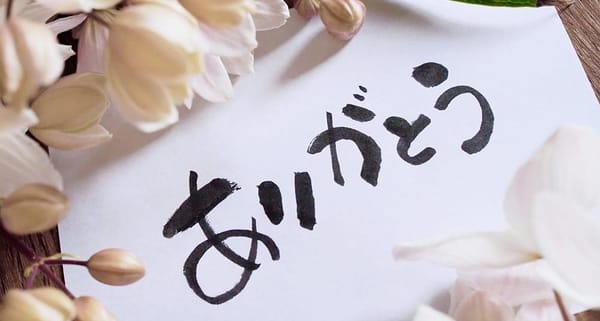Why Nomikai Still Matter (Even If You Dread Them)
Struggling with nomikai culture in Japan? Learn how company drinking parties impact workplace relationships, social dynamics, and career growth — plus practical tips to navigate them with confidence and boundaries.

In Japan’s work culture, the nomikai (飲み会), or company drinking party, occupies a strange space: it’s not quite work, not quite play, and certainly not always optional. For many professionals - especially women - it can feel like a minefield of expectations, performance, and unspoken rules.
But for seasoned employees, the challenge isn’t about learning what a nomikai is - it’s figuring out how to make it work for you, without burning yourself out or becoming the default “fun police.” And yes, without accidentally ending up in a drinking contest with Miki-san from accounting (who somehow downs twelve highballs and still emails you spotless Excel sheets by 7:30 a.m.).
So how do you navigate nomikai culture without losing your balance - or your boundaries? Let’s unpack both the upsides and darker nuances of this workplace tradition, with real data, cultural context, and actionable advice.
Why Nomikai Still Matter in Japan’s Work Culture
Despite the steady rise of remote work and younger employees skipping social obligations, nomikai remain a key informal communication channel - especially in traditional industries. A 2023 Nikkei HR survey found that:
- 58% of Japanese managers said nomikai help “build trust faster than meetings.”
- 41% of employees aged 30–45 agreed that drinking with colleagues helped resolve lingering tensions or misunderstandings from the workplace.
Japanese workplaces often avoid direct confrontation or explicit praise during business hours. So, after-work drinks serve as a pressure release valve - a space where roles soften, hierarchy blurs, and conversations become less scripted.
Some even argue that promotions, mentoring opportunities, or team inclusion are influenced here. While not officially tracked, anecdotal evidence and HR studies suggest that those who regularly attend nomikai are seen as “more communicative” and culturally aligned, especially in mid-sized and large firms.
“What you say at 9 p.m. over grilled chicken might carry more weight than what you said in the Monday strategy meeting.” - Mid-level Japanese HR executive (anonymous interview)
Survival Strategies: Making Nomikai Work for You
1. Set Your Boundaries Before the First Kanpai
Before the first toast (kanpai!), decide how much you’re willing to drink - and stick to it. Don’t go glass-for-glass with your male boss. Not only is it unnecessary, but it’s also a trap. Many Japanese women develop an almost superhuman tolerance, and trying to keep up with them is a rookie mistake.
Personal anecdote: “When I first started attending nomikai, I thought I could pace myself. Until I met Miki-san, who drank twelve drinks and looked more awake than I did. I learned quickly:
don’t challenge Miki.
2. Show Up, But Don’t Overstay
Contrary to belief, you don’t have to attend all the way through the second (nijikai) or third (sanjikai) bars. Many seasoned professionals opt to attend only the first round - the official team dinner - and excuse themselves tactfully after that.
Here’s how to say it without creating drama:
- 今日は1次会までで失礼します。Kyō wa ichiji-kai made de shitsurei shimasu.I’ll excuse myself after the first round tonight.
- 明日朝早くて…Ashita asa hayakute…I’ve got an early morning tomorrow…
- 体調が万全じゃなくて…Taichō ga banzen janakute…I’m not feeling 100% today…
These are soft but effective exits. Saying no gracefully is part of establishing your boundaries - and protecting your energy.
The Unspoken Power Dynamics
While many teams genuinely enjoy nomikai, the elephant in the room is social coercion. According to a 2020 All-Japan Labour Union survey:
- 37.8% of employees felt moral pressure to attend.
- 21.6% of women said they experienced discomfort or inappropriate behavior at company drinking events.
That’s not just “awkward fun.” It blurs into workplace power harassment (パワハラ) - when declining social invitations affects how you’re treated at work. This is a legal grey area increasingly under scrutiny, especially for women who face additional layers of social expectation.
Common Concerns for Women at Nomikai
- Pouring drinks - A traditional but outdated expectation often assigned to junior women.
- “Teasing” that’s not funny - Jokes about appearance, marital status, or alcohol tolerance.
- Rumors or speculation - Who left together? Who stayed behind?
Even when no lines are overtly crossed, the mental load of “performing” at a nomikai - without appearing too cold, too flirtatious, or too withdrawn - can be exhausting.
Tip: Be the one to toast early and redirect the mood. “Let’s cheer for finishing the Q3 launch!” That keeps the focus on work accomplishments and prevents the evening from drifting into too-personal territory.
So, Why Do Bosses Always Want to Go?
You’re not wrong in suspecting deeper motivations. Cultural and psychological factors are at play. For some managers - especially older men - nomikai offer:
- A surrogate family environment they may not have at home
- A space to vent or be vulnerable, where they’re not “the boss”
- A chance to “read the air” about how the team really feels
According to 2022 research by Keio University, workplace loneliness among middle-aged Japanese men is rising, and nomikai serve as an emotional outlet that doesn’t exist in formal meetings.
That doesn’t mean you need to take care of your boss’s emotional needs. But it does explain why they often push for second or third rounds - and why they take it personally when younger employees pull away.
In the End, Make It Serve You
The best way to make nomikai less stressful - and maybe even enjoyable - is to approach it as strategic social currency, not just a drink fest. Use it to:
- Build trust and visibility with cross-functional teams
- Connect with mentors or more senior women over shared experiences
- Test leadership skills by guiding the conversation and setting the tone
And remember: your comfort matters. Whether you choose to leave after the first round or stay until karaoke, let it be on your terms.



